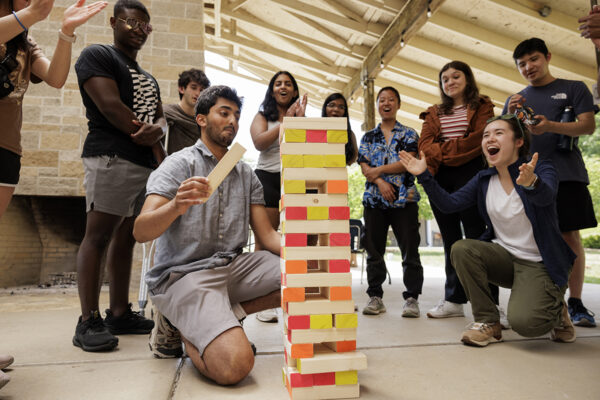Njoku installed as Wise Chair in Pediatric Anesthesiology
Dolores B. Njoku, MD, the director of pediatric anesthesiology at the School of Medicine and anesthesiologist-in-chief at St. Louis Children’s Hospital, has been installed as the new Rudolph L. and Mary Frances Wise Endowed Chair in Pediatric Anesthesiology.
Awad elected president of Association for Surgical Education
Michael Awad, MD, PhD, a professor of surgery at the School of Medicine, has been named president of the Association for Surgical Education.
Improved orthopedic health doesn’t necessarily mean improved mental health
Orthopedic clinics at the School of Medicine ask patients to fill out an electronic questionnaire at each visit. Analyzing data from questions about anxiety and depression, researchers have found that as patients’ musculoskeletal health improves, anxiety and depression don’t necessarily follow suit.
06.28.23
Images from on and around the Washington University campuses.
Poverty negatively impacts structural wiring in children’s brains, study indicates
A study by researchers at the School of Medicine reveals that household and community poverty may influence brain health in children. Childhood obesity and lower cognitive function may explain, at least partially, poverty’s influence on the brain.
Big Ideas Competition winners announced
The winners of the Big Ideas Competition, which supports novel projects in informatics and health-care delivery, have been announced.
Gaytan named executive director of compliance and audit
Kathy Gaytan, director of internal audit, has been promoted to executive director of compliance and audit at Washington University in St. Louis, announced Chancellor Andrew D. Martin.
Page receives Gloria White Award
Emily Page, senior manager of wellness and benefits projects in the Office of Human Resources, received the Gloria W. White Distinguished Service Award, now a universitywide award and the highest staff honor at the university.
Martin to lead pediatric surgery division
Colin A. Martin, MD, a specialist in intestinal rehabilitation surgery and an advocate for diversity, equity and inclusion in surgery, has been named director of the Division of Pediatric Surgery in the Department of Surgery at the School of Medicine.
Prufrock to study how tooth formation affects face shape
Kristen Prufrock, in the Department of Neuroscience at the School of Medicine, is teaming up with anatomists from several other institutions to identify the cellular principles governing how facial bones take shape.
View More Stories








